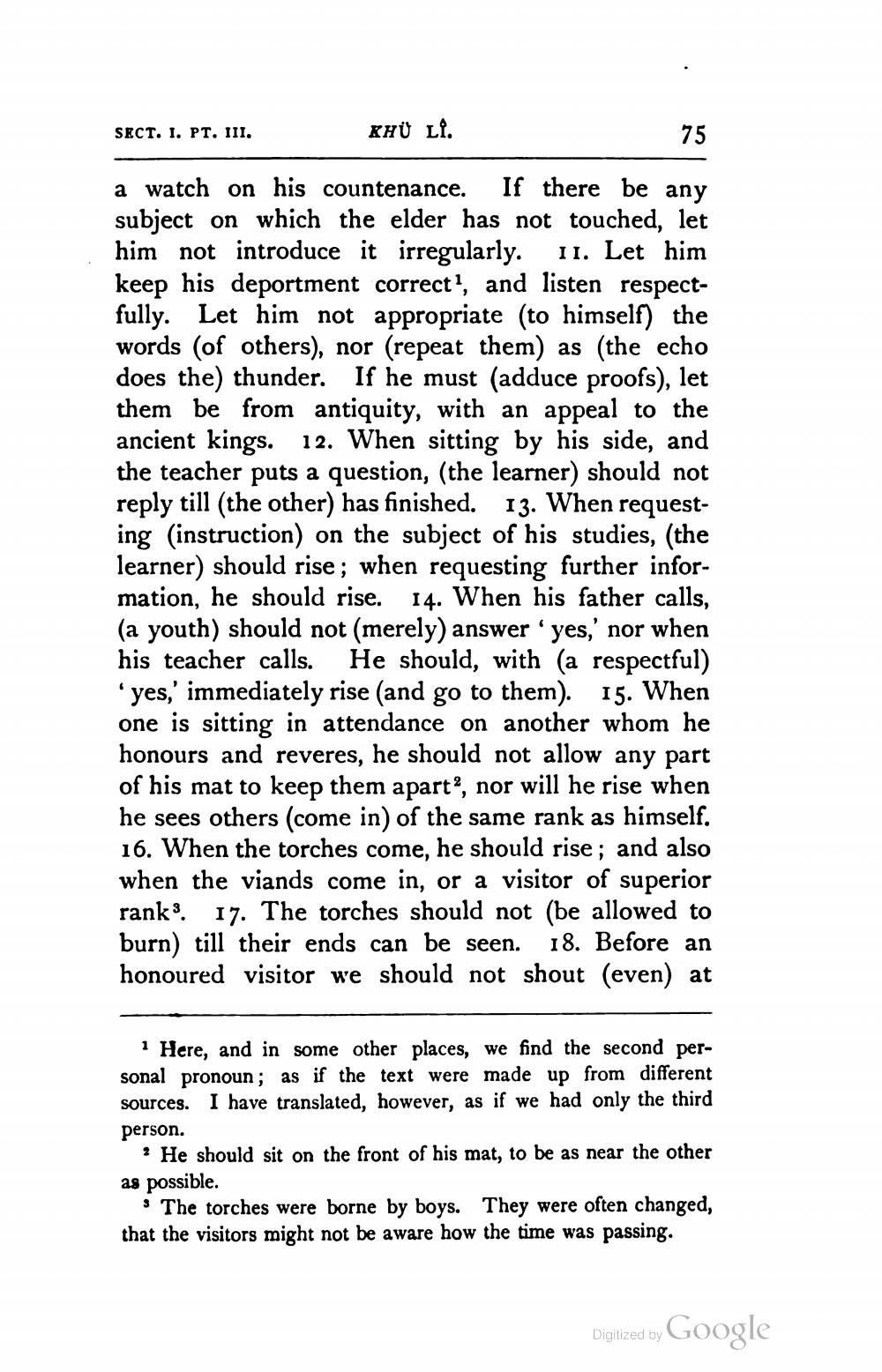________________
SECT. I. PT. III.
KHU LI.
a watch on his countenance. If there be any subject on which the elder has not touched, let him not introduce it irregularly. 11. Let him keep his deportment correct?, and listen respectfully. Let him not appropriate (to himself) the words (of others), nor (repeat them) as (the echo does the) thunder. If he must (adduce proofs), let them be from antiquity, with an appeal to the ancient kings. 12. When sitting by his side, and the teacher puts a question, (the learner) should not reply till (the other) has finished. 13. When requesting (instruction) on the subject of his studies, (the learner) should rise; when requesting further information, he should rise. 14. When his father calls, (a youth) should not (merely) answer 'yes,' nor when his teacher calls. He should, with (a respectful) 'yes,' immediately rise (and go to them). 15. When one is sitting in attendance on another whom he honours and reveres, he should not allow any part of his mat to keep them apart, nor will he rise when he sees others (come in) of the same rank as himself. 16. When the torches come, he should rise; and also when the viands come in, or a visitor of superior ranks. 17. The torches should not (be allowed to burn) till their ends can be seen. 18. Before an honoured visitor we should not shout (even) at
1 Here, and in some other places, we find the second personal pronoun; as if the text were made up from different sources. I have translated, however, as if we had only the third person.
? He should sit on the front of his mat, to be as near the other as possible.
The torches were borne by boys. They were often changed, that the visitors might not be aware how the time was passing.
Digitized by Google




